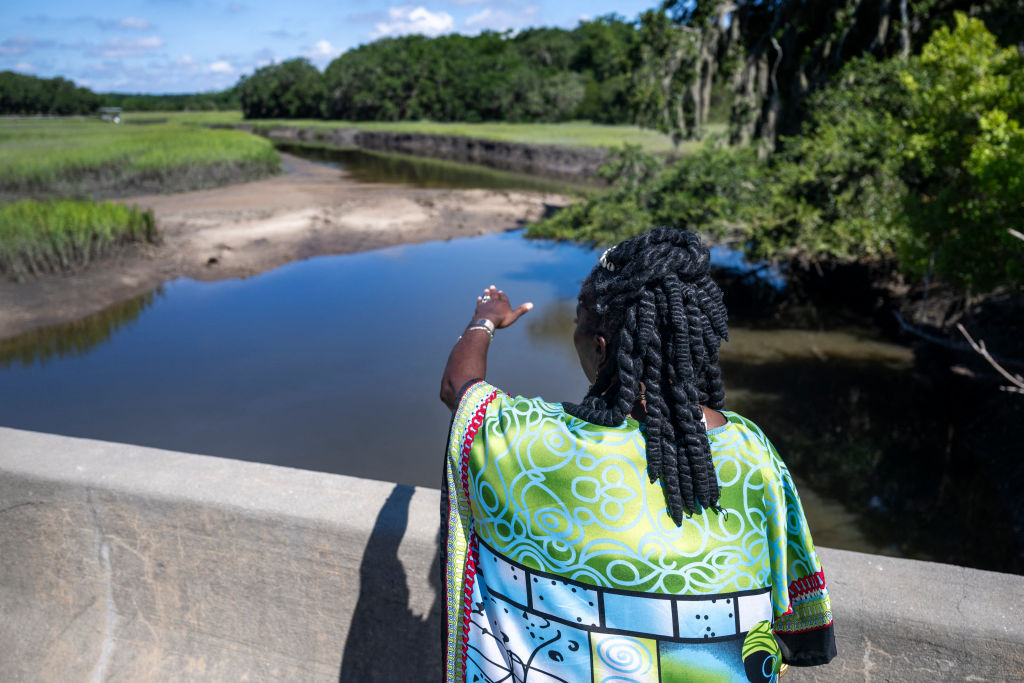
by Mary Spiller
September 13, 2024
The Gullah Geechee community is made up of over 1 million people along the coast.
The Gullah Geechee community, which is spread between Jacksonville, North Carolina, and Jacksonville, Florida, is at risk of losing its ancestral homeland due to water pollution, increased storm surge, and disruptive climate impacts.
The community, one of the oldest Black-indigenous groups in the United States, has over one million people along the 400-mile stretch of coast. The group has occupied the Gullah Geechee corridor since its enslaved West African ancestors arrived there nearly 400 years ago. The Gullah Geechee people have since preserved their unique African traditions, but they are now under threat due to the climate crisis.
In 2019, the elected Chieftess of the Gullah Geechee Nation, Queen Quet, told Congress, “We knew Gullah Geechee culture would not continue to thrive or survive if we get displaced from the Sea Islands.”
“It’s a very unique community that has its dialect and maintained a certain type of connection to nature, the land, and the water.” The resiliency manager at the Gullah Geechee Cultural Heritage Corridor and descendent of the ancestral Gullah Geechee lineage, Erica Xavier-Beauvior, added, “There is a lot of spirituality that is embedded into this community that isn’t found in mainstream ways of society.”
Those living along the Gullah Geechee corridor have faced increasingly dangerous damage from hurricanes and tropical storms. Some have already been displaced due to irreplaceable infrastructure damage following Hurricane Florence in Wilmington, North Carolina. Upwards of 2,000 residents have been forced to relocate.
According to NASA, it will only get worse. As the climate crisis progresses, sea levels are rising much faster in the Southeast part of the United States. The Gullah Geechee people living along the corridor of their ancestral homeland are faced with rallying for help with restoration or committing to relocating from their sacred homeland.
“Our stance is, you are a sovereign being that knows you belong to the coastline and have the option to leave if you wish,” Xavier-Beauvior said.
“I have seen buyouts and collaborations with counties, but when it comes to accepting these offers, we also need to think about what information is provided so that people know what they are giving up.”
So far, aid has begun to come from both public and governmental support through funding and policy changes. Most recently, the Biden administration has gathered up to $295 million to be available for eligible states to help the communities within them withstand the “damages of climate change.” The Georgia and Florida areas of the Gullah Geechee corridor were both eligible for $40 million and $20 million from the funding pool, respectively.
RELATED CONTENT: The Gullah-Geechee Community Is Fighting To Protect Their Land From Gentrifiers In South Carolina






